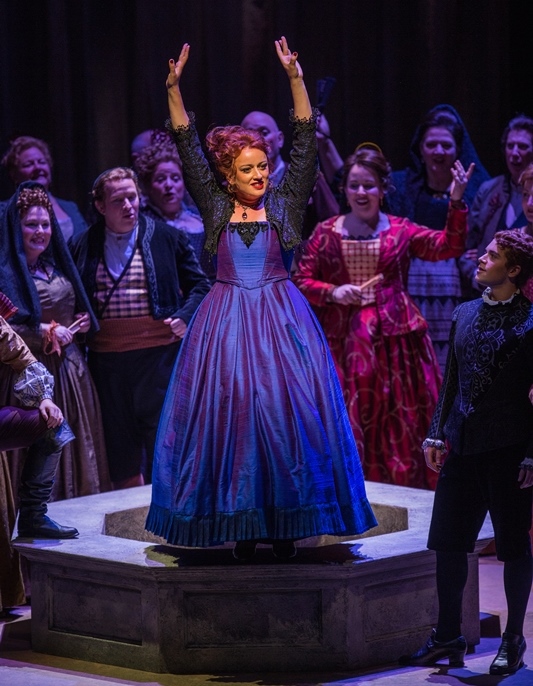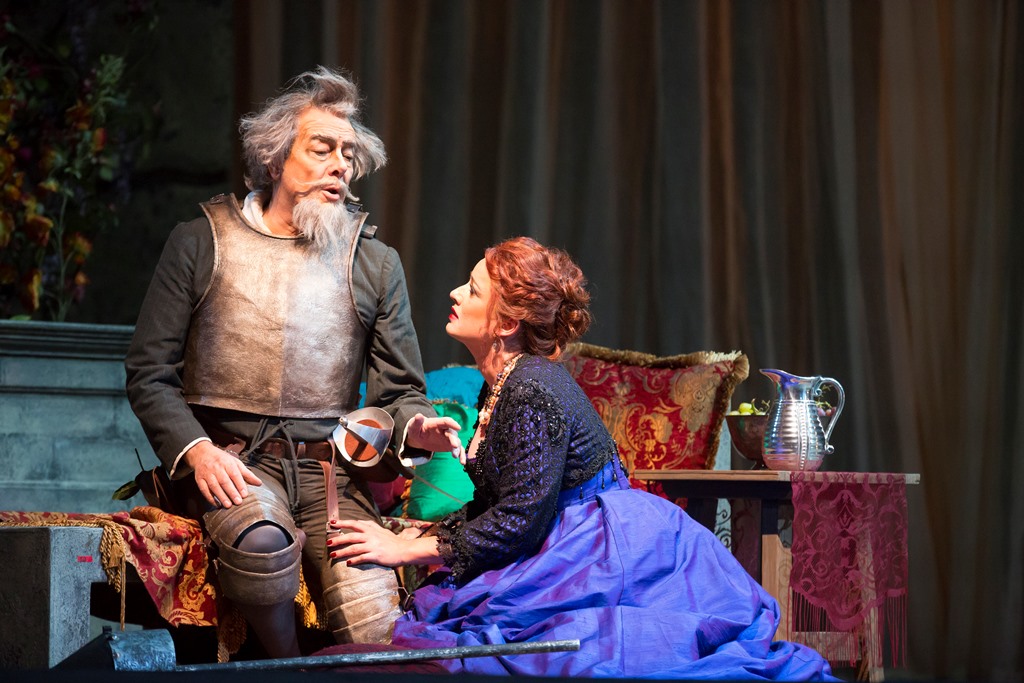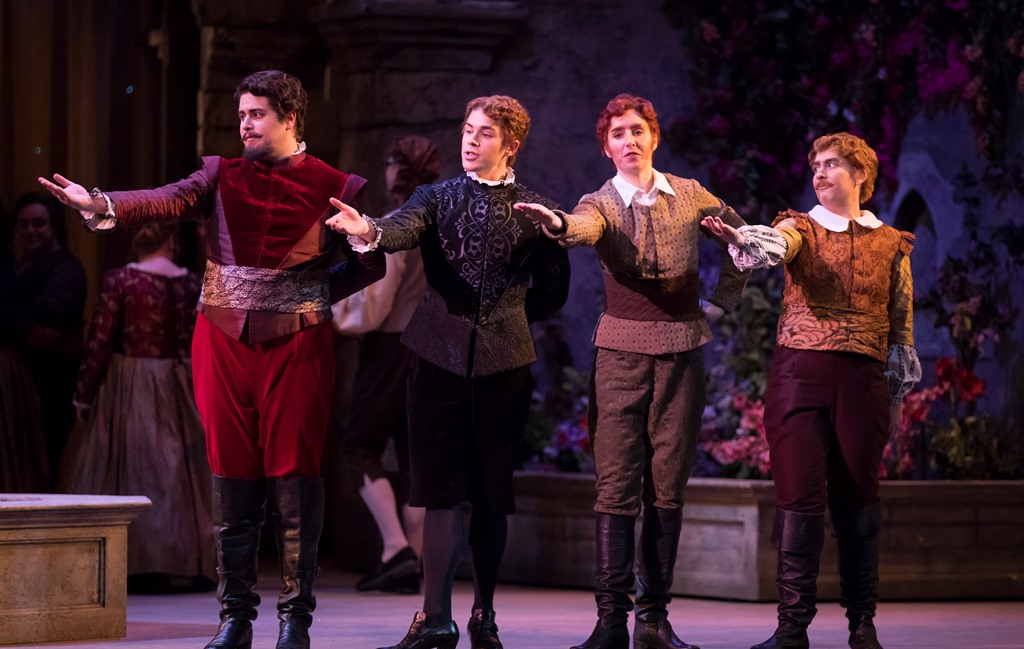A Grandly Emotional 'Don Quichotte' at the Lyric Opera
/By Elsa Tranter
12/1/2016
Photos by Todd Rosenberg and Andrew Cioffi, Lyric Opera of Chicago
Tilting at windmills was never more moving than tonight at Lyric Opera of Chicago's performance of Jules Massenet’s Don Quichotte. This opera, first performed in 1910 at the end of Massenet’s life, is somewhat of a throwback to the Romantic tradition at a time when there was much more modern and edgy music being written. How lucky are we that he did so, and how fortunate that companies such as the Lyric are still producing it.
The sets and costumes are very traditional and it was an emotional rush to watch the grand opening scene unfold in the town square (helped along by the exquisite sound of the orchestra, under the expert leadership of Sir Andrew Davis. The Lyric Opera Chorus (which, alas, did not get a bow at the end of the performance) was very strong in voice and in movement in this scene as well as others and filled the stage with their presence. In many ways they are the unsung heroes/heroines of major opera companies—always reliable, always flexible, always in the background. Bravi tutti!!
The title role was sung by Ferruccio Furlanetto, internationally acclaimed for over four decades; he considers this his favorite role and it suits him magnificently. He was by turns forceful, comic, somewhat lunatic, romantic and finally totally endearing. It was a tour de force of a performance. He is tall and gaunt and had the requisite unruly and wild hair and awkward gait. His voice was able to portray so many different emotions through the evening and he acted them brilliantly.
His servant, Sancho Panza, was sung by Nicola Alaimo, making his Lyric debut. He, too, gave his all emotionally in voice and in body. His defense of his master in front of the jeering townspeople and his agony at the impending death of the Don were especially well done.
Clementine Margaine was Dulcinee, also making her Lyric Debut. She has a bright and clear high mezzo voice and used it to great effect. She sang and danced in Carmen-like fashion in the earlier acts, but in the great romantic scene was Don Quichotte in Act 4, she became so gentle in spirit after she laughingly turned down his marriage proposal. Their duet was heartbreaking, a bit like that of Hans Sachs and Evain Wagner’s Der Meistersinger.
The quartet of Dulcinee’s suitors included Diana Newman, Lindsay Metzger, Jonathan Johnson and Alec Carlson. Their voices were well matched and their acting was lively and amusing. Having two of the suitors be trouser roles was good musically and also, in these times, a pleasant touch of modernity.
The crowd scenes used starlight and low lights on the stage most effectively to give us a good sense of place. And the scenes with just Don Quichotte and Sancho plus the horse, Rossinante, and the donkey (without a name) were simple and gave a great sense of intimacy on the stage. The windmill scene was especially effective with projected windmills and real ones on the stage. The costumes were just right, if unremarkable in any particular way—they made the whole seemed even greater than its parts, if that were possible.
At the beginning of Act V, a long introduction by solo strings was beautifully played and was a prelude to the sadness of the final scene. Many of us were in tears at the end. Such a poignant story this is, all these hundreds of years after it was first written. Seeing it tonight was a very special event.
The Lyric Opera building is quite spectacular in its Art Deco/Art Nouveau splendor. It first opened in September 1929, days after the stock market crash, and was thoroughly renovated in the 1990s without losing any of its glamour. This only added to the grandness of the evening.
Elsa Tranter is a Bostonian who has lived in Berkeley for over 40 years and has been an opera goer for most of those years. She worked as a graduate student adviser at UC Berkeley and still attends Cal Performances regularly. Her favorite composer is Wagner and her favorite opera is Tristan und Isolde.







